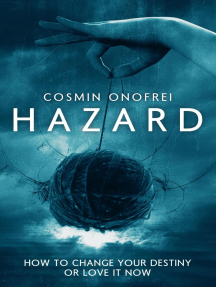
We’re one week away from Valentine’s Day. Women everywhere have dreams of receiving roses and chocolates from their significant other. They hope for a romantic dinner, and maybe something sparkly from Tiffany’s or for those less flush with cash, Zales.
But Valentine’s Day can be pretty brutal for the single ladies whos romantic life is looking a bit barren. Sure, plenty of women will celebrate “Galentine’s Day” of February 13th thanks to the popular sitcom Parks and Recreation. And some women may choose to treat themselves to a dozen long-stemmed roses. But despite all that, even women confident in their singlehood can feel like they are less this time of year.
Writer and podcasterShani Silver feels our pain. She, too, has been desperate to be in a relationship. She’s has gone on a lot of dates, she’s has friends set her up, she’s spent lots of time on dating apps, has had some not so good boyfriends (and ones who were great, but not the one). All of this has left her pretty frustrated. Is it better to embrace singleness and not focus so much on being in a relationship 24/7? Silver discusses this in her book A Single Revolution. Don’t Look For a Match. Light One.
There is no of advice aimed at single women, especially heterosexual women, on how to get and keep a man. Books like The Rules, He’s Just Not That Into You, and Suzanne Venker’s odious How To Get Married, which I reviewed several years ago, all give conflicted and often women-shaming advice on how to nab Mr. Right. There are podcasts and websites filled with advice, too. And spare me all the so-called dating and relationship coaches who consider themselves experts even though their expertise seems nebulous at best.
Silver is not of the mind that single people rule, and coupled people drool. She completely understands the desire to find love. She wants to find love. What Silver is championing is the idea that women would feel they’re fine being single. There is nothing wrong with being single.
In A Single Revolution, Silver fully admits she’s been through it all when it comes to the pursuit of love and relationships. As mentioned, she’s been a lot of blind dates. Friends and family have set her up with the “perfect guy” for her. And she spent plenty of time trying to find love using dating apps. Silver also got bombarded with advice like “Don’t be so picky. Lower your standards” and “Don’t worry, sweetie. You’ll find him when you least expect it.” I bet some of the women reading this review have done the same things and have received the same advice. Yet, getting a ring and ending up at The Chapel of Love.
All of this made Silver feel like a total loser in a world that puts marriage and coupledom on a pedestal. But Silver decided not to browbeat herself, and instead change the framework about being single. She stopped making dating her job. She quit the dating apps. And she began to focus on other things in her life that brought her joy.
Things for Silver began to get a better. She’s still open to love. But now that she hasn’t made that her sole focus, she’s less stressed out, and her world has opened up to new possibilities in her life (like her podcast and this book). She calls out the well-meaning people who force their advice on single people. And she calls out the dating apps for being more about making money than you finding your one and only. So if you got Bumble on Tinder on your smart phone you might want to delete them.
A Single Revolution fully articulates what so many women have gone through when it comes to the dating scene. (One caveat-Silver has written A Single Revolution from the point of view of a cisgender, straight woman). A lot of what Silver talks about in this book is very relatable and will validate a lot of the things so many of us women have been through. And though it is easy to be cynical, I finished reading A Single Revolution feeling hopeful. Being single can open so many new possibilities in one’s life, and we can still be open to love. In fact, it just might help us find the one, and if not, that’s perfectly okay.







